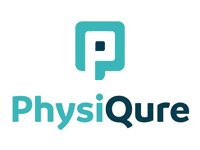Innovations in medicine and technology have produced ground breaking improvements in service delivery. Despite tremendous changes, it is just the beginning step of this transition that society encounters.
Currently, the medical sector faces four influential challenges:
- Market convergence
- Quality of service
- Protection of medical devices linked to the Internet
- Affordable pharmaceutical pricing.
2020 was the year the medical profession anticipated major changes in healthcare delivery. This is due to improved access to patient information and the introduction of innovative technologies and big pandemic COVID.
The idea of virtual treatment comes into practice in this year. While the medical sector is experimenting with new payment models and methods for big data management. These combined innovations will trigger drastic changes in the medical field soon.
It is important that we understand multi-faceted threats to the healthcare industry. Today’s list of problems for the healthcare sector goes like this:
Integration of information and Health Care
Using connected medical devices and AI-integrated software application will provide the healthcare companies with a vast amount of data which they can use to generate information.
However, most healthcare firms, lack sophisticated infrastructure and data processing systems to handle data collected.
Healthcare providers need to prepare all models for all management layers. Operational, tactical, and strategic, and partner with a reliable integrator that supports integrated health systems with established service management method.
Healthcare costs are increasing
A concerted effort by healthcare providers, insurance firms, and benefactors will help curb growing healthcare costs. Thus it help to overcome one of healthcare’s major challenges. It could also address the new payment model for unnecessary medical tests.
Cyber-safety
Healthcare organizations continue to see an increase in the number of cyber-attacks. Attackers become cleverer and more persistent. Employees become more comfortable with electronic information.
Due to the vast amount of information contained therein, records kept within the healthcare industry are valuable. The providers maintain several electronic systems that contain patient information, all of which are susceptible to attack.
Enterprises should periodically back up critical data. They should have an incident response plan that addresses quickly to backup data to ensure operations and services can proceed with minimal interruption. Response plans for the incident should be checked and routinely tested.
Implementing ways to improve patient experience and satisfaction level
By providing high-quality care through various digital methods, such as remote care, patient apps, and self-check-in kiosks, medical practices aim to enhance the overall patient experience and comfort.
A positive patient experience helps to strengthen patient relationships. It leads to better patient compliance, early disease detection and thus improve clinical outcomes.
Pressure on Medicinal Prices
The increase in prescription drug costs is one of the major healthcare issues for both healthcare companies and patients. The reason that it can continue to happen is that there is no market check, no person or entity to justify determining the drug prices.
An industry-based regulatory body can be established that includes all members of all healthcare and pharmaceutical industry stakeholders to regulate the price hike at least.
Bottom line
Healthcare companies need to consider a range of healthcare challenges that emerge with new technology when making decisions in 2020 and change market practices. To avoid healthcare challenges, it is essential that they map their consumer needs and preferences and create an implementation approach based on that.
